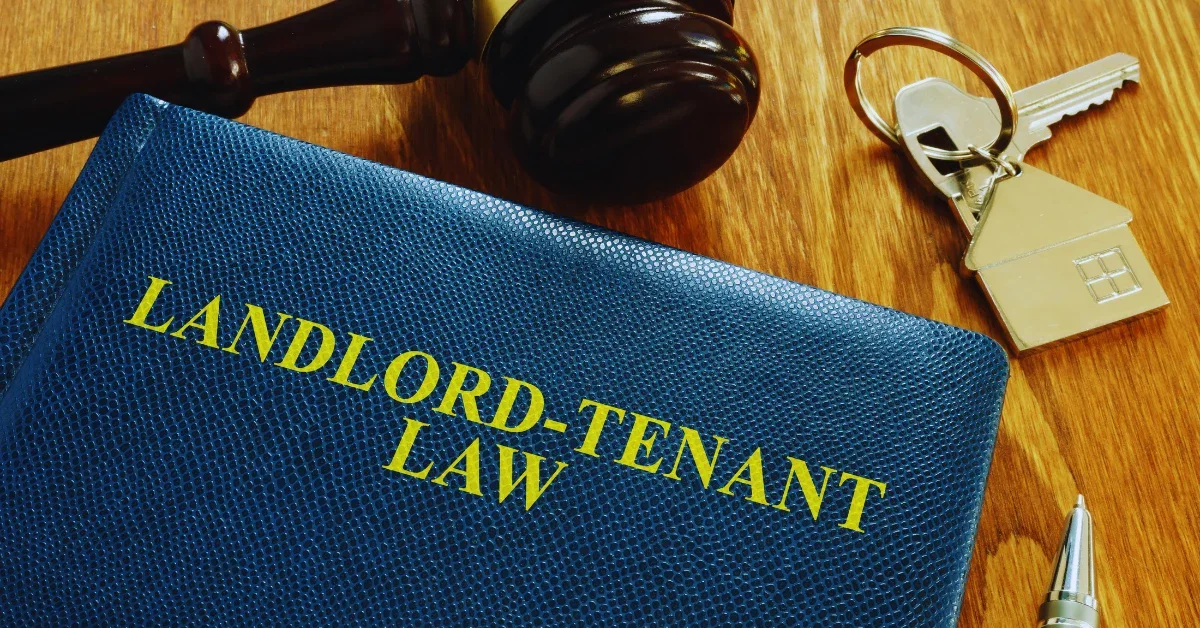What Questions Can a Landlord Ask a Prospective Tenant?
Landlords can ask prospective tenants about their income, employment, rental history, and credit score. It’s important for a landlord to gather this information to ensure that a potential tenant is financially responsible and a good fit for the property.
However, landlords cannot ask discriminatory questions about a tenant’s race, gender, religion, national origin, familial status, or disability status. These questions could be used to illegally discriminate against tenants and violate fair housing laws.
As a result, it’s important for landlords to only ask relevant and non-discriminatory questions during the tenant application process.

What Is The Legal Framework For Landlord-Tenant Relationships?

Overview Of The Fair Housing Act And Its Purpose
The fair housing act is a federal law that prohibits discrimination in the sale, rental, and financing of housing based on different protected classes.
The primary purpose of the act is to ensure equal opportunity in housing for all Americans.
Below are some key points to consider:
- The act applies to most types of housing, including apartments, houses, and mobile home parks.
- Exceptions may apply to certain types of housing, such as owner-occupied homes with less than four units.
- The act prohibits discrimination based on race, colour, national origin, religion, sex, familial status, and disability.
Protected Classes Under The Law
The fair housing act protects several classes from discrimination, which are:
- Race
- Colour
- National origin
- Religion
- Sex
- Familial status (families with children under 18)
- Disability
It’s worth noting that the Department of Housing and urban development (hud) may update or add new protected classes to the list.
Repercussions Of Violating Tenant’S Rights
Landlords who violate the fair housing act’s provisions can face severe legal and financial consequences.
Violating a tenant’s rights can lead to lawsuits, damage to the landlord’s reputation, and a monetary penalty. Here are some repercussions to keep in mind:
- If the Department of Justice finds that a landlord has violated the law, they may file a lawsuit against the landlord.
- If a landlord loses a fair housing act lawsuit, they may have to pay compensatory damages to the tenant.
- In some cases, landlords may receive criminal charges if they violate a tenant’s rights.
It’s important to understand that violating the fair housing act can have serious financial, legal, and ethical repercussions.
As a landlord, it’s your responsibility to ensure that you follow the law and provide equal opportunity in housing for all.
What Are Some Appropriate Questions To Ask A Prospective Tenant?

Questions Related To Rental History And Credit Checks
When conducting a tenant screening, one of the most important aspects landlords should consider is their prospective tenant’s rental history and creditworthiness.
Here are some appropriate questions that landlords can ask tenants in this regard.
- Have you ever been evicted before?
- Have you ever broken a rental agreement?
- Why did you move out of your previous rental property?
- Do you have any outstanding balances from previous rentals?
- Are you willing to undergo a credit check?
- What is your credit score?
Asking these questions will enable landlords to evaluate a tenant’s reliability, financial capability, and stability as a renter.
Questions About Employment And Income
To make sure prospective tenants can afford the rent, landlords may ask them about their employment status, income, and stability.
Here are appropriate questions to ask tenants based on these factors.
- What is your employment status?
- What is your current occupation, and how long have you been employed?
- What is your monthly income?
- Do you have any outstanding debts that could impact your ability to pay rent on time?
- Can you provide proof of income?
Asking these questions will help landlords determine whether tenants have a stable source of income to support their tenancy.
Questions About Personal References And Relationships With Previous Landlords
In addition to evaluating a prospective tenant’s rental history and finances, landlords can also ask questions related to their personal references and their relationships with previous landlords.
Here are some appropriate questions to consider.
- Can you provide references from previous landlords or employers?
- What was your last landlord’s name and contact information?
- Did you have any problems with your previous landlord or neighbours?
- Are you able to provide any other professional or personal references?
Asking these questions will give landlords insights into a tenant’s behaviour and potential reliability as a renter, based on the experiences of previous landlords and references.
By asking these appropriate questions, landlords can make informed decisions on tenant selection, ensuring not only their property’s security but the tenant’s comfort as well.
What Questions Should A Landlord Avoid Asking A Prospective Tenant?
As a landlord, it’s critical to understand what questions you can and cannot ask a prospective tenant.
While you should certainly inquire about things like employment and salary, some questions are off-limits.
In fact, asking the wrong questions could violate fair housing laws, resulting in costly lawsuits and legal troubles.
Here are some questions that landlords should avoid asking prospective tenants, especially when it comes to protected classes under the fair housing act.
Questions Related To Protected Classes Under The Fair Housing Act
Landlords cannot discriminate against prospective tenants based on their race, colour, religion, sex, national origin, familial status, or disability.
As such, they should avoid asking questions that could be seen as discriminatory or impose on protected classes, which include:
- Race or ethnicity
- Sexual orientation
- Religion
- Age
- Disability
- National origin
Inquiries About A Prospective Tenant’S Marital Status, Sexual Orientation, Or Medical History
Questions about a tenant’s marital status, sexual orientation, or medical history should be avoided as these can be perceived as discriminatory.
As a landlord, you can’t ask about a prospect’s religion or medical history. You can, however, inquire about a tenant’s income, previous rental history, and job details.
Here are examples of questions to avoid:
- Are you married?
- What’s your sexual orientation?
- Do you have a physical or mental disability?
Questions That Could Be Interpreted As Discriminatory Or Biased
As a landlord, you should steer clear of any question that might even hint at discriminatory or bias thoughts.
Here are some additional questions you should avoid when interviewing prospective tenants:
- What’s your race?
- How old are you?
- Where were you born?
- Do you have children?
By staying away from these types of questions, you can ensure that you are following fair housing guidelines and screening all potential tenants fairly and equally.
Remember that while it’s essential to vet tenants, you must do so in a way that is legal and fair.
Frequently Asked Questions For What Questions Can A Landlord Ask A Prospective Tenant
What Kind Of Questions Can A Landlord Ask A Prospective Tenant?
A landlord can ask about the tenant’s financial status, employment history, and rental history. They can also ask about their reason for moving and if they have any pets.
Can A Landlord Ask About An Applicant’S Criminal History?
Yes, a landlord can ask about an applicant’s criminal history, but they must follow fair housing laws and not discriminate based on race, national origin, or religion.
Is It Legal For Landlords To Ask For A Social Security Number?
Yes, it is legal for a landlord to ask for a tenant’s social security number for the purpose of conducting a background check or verifying their identity.
Can A Landlord Ask About An Applicant’S Personal Life?
No, a landlord cannot ask about an applicant’s personal life such as their sexual orientation, family status, or medical history. This is considered discrimination and is against fair housing laws.
Conclusion
It’s important for landlords to carefully consider the questions they ask prospective tenants.
While landlords do have the right to obtain certain information, they must also ensure they don’t violate any fair housing laws.
As a landlord, it’s important to ask questions related to the application process and to verify the information to ensure tenants are financially responsible.
However, it’s important to avoid asking illegal questions related to familial status, religion, or national origin.
As a prospective tenant, it’s important to be aware of these fair housing laws and to have a clear understanding of your own rights throughout the application process.
Ultimately, by understanding the legal constraints around tenant screening questions, landlords can make informed decisions and ensure that every applicant is given an equal opportunity to be considered for a rental property.